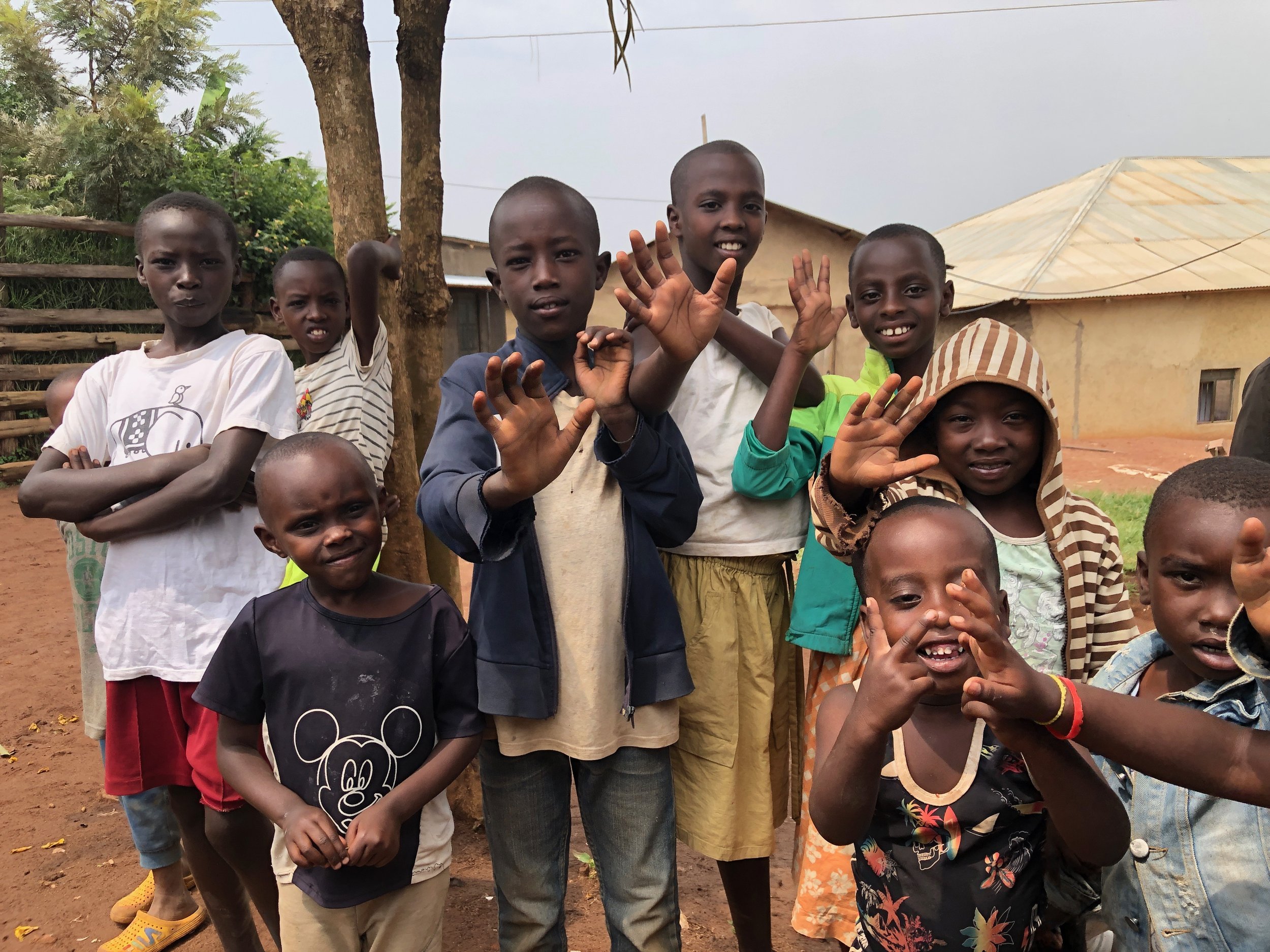Hayley with members of Ebrahem’s family in Madaba, Jordan.
Animal Tracks (originally called Gather for Goats) was born in 2017, when Hayley, LHI’s Founder & CEO, was distributing aid supplies to Syrian refugees in Jordan. When Hayley, who speaks Arabic, asked people what they needed, she was surprised to find the response was overwhelmingly, “goats!”
Many families who fled to Jordan are Bedouin and have been cultivating livestock and crops for generations. Raising goats and sheep is a prosperous and respectable profession. But when the Syrian civil war broke out in 2011, families had to leave everything behind, including their herds—some of which numbered in the hundreds.
Hayley, who has a passion for the Arabic language, loves connecting with people and finding out exactly what they most need to build a better future.
Bedouin families told Hayley that having goats again would improve their lives tremendously. Goat milk provides essential protein, vitamins, and minerals, and any extra milk and milk products can be sold at the market. Families can also breed the goats to grow their herd and earn more income by selling male offspring.
While sitting with Ebrahem’s family, Hayley was treated to a variety of fresh, homemade goat milk products!
The request made sense, so Hayley contacted a professor of agriculture at the University of Jordan in Amman for advice. We were determined not to distribute just any old breed of goat, and decided to carefully select Shami-Baladi crossbreed goats, also known as Damascus goats. These friendly Middle Eastern natives are prolific milk producers, yielding 350 to 650 liters of milk annually, and often giving birth to twins and triplets. Shami goats thrive in hot, arid environments, making them ideal for the Syrian families in Jordan.
Some experts think that Shami goats' long ears help dissipate heat and keep them cooler in hot desert conditions.
After connecting with a local partner organization near the Syrian border in May 2017, we distributed our first 286 Shami goats to 143 Syrian refugee families who live in improvised refugee camps across the Mafraq region.
Ebrahem and his family live in Madaba, Jordan, and they received 2 milk goats from LHI in 2021. Hayley had the opportunity to visit their home and catch up with them to hear about their progress. In just a few years, through breeding and selling male offspring for females, the family turned 2 goats into 25! They were able to move out of the camp into a home nearby.
Ebrahem’s family used the income from breeding and milking their goats to move into a new home, which is close by the goat enclosure pictured above.
Since 2017, we’ve distributed thousands of goats in Jordan, and we’ve followed the Animal Tracks even further. In 2024, we expanded to Uganda with goats, chickens, and pigs for Congolese and Sudanese refugees, and in 2025, we distributed goats and chickens for internally displaced people in Ethiopia. We’re so excited for how far we’ve come, and honored to be supporting so many families on the path to building better futures.
Thank you to our generous donors for making Animal Tracks around the world!




























